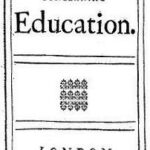I’ve been pushing the Drama and IT connection for a decade now.
I am using Process Drama as the basis for my work – basically it entails role playing around given pretexts – situations, issues, problems or other stimulus – but drawing upon a variety of expressive modes – including the artistic, non-verbal, and dramatic – the purpose is generally to facilitate shifts in empathetic understanding – the emphasis is therefore on the AFFECTIVE domain of learning but also embraces the Cognitive and Psycho-motor domains.
Process Drama is essentially improvised – and can be used very successfully in playbuilding – I am hoping to frame the entire process as performance – by repositioning the learners and audience as players in the drama – it is unpredictable in many ways – the nature of the expression and narrative structure can be ad hoc and certainly non-representational and non-linear – the real learning comes from the reflective component of processual work. Learners constantly shift in and out of role – reflecting upon the choices they’ve made, the insights they’re developing, the feelings they experience, the questions that arise – and negotiate the various episodes of the drama they would like to explore.
To shift it into virtual environments I am also looking at structures in existing games, especially RPGs – I am putting forward a concept I am calling “generative play“- playful engagement in a fictional environment where there is an expectation of contextually relevant meaning-making that is both personal and shared but is not predicated by predetermined nor prescribed content.
I have attempted a MOO version of the model and am planning that within the next couple of months that I’ll start working on the Second Life version.
I’ve started to get a clear sense of what needs to be embedded in these worlds so that we can facilitate the process drama – the idea of “traces” – clues, if you like, that help to set the context and the general goals of the drama – in the current MOO scenario players are encouraged through in-world features to address the issue (transgressive online behaviours) through the narrative construct of a looming referendum – there are also graffiti boards, cinema (showing interesting YouTube and Google Video examples of matters that concern citizens – the video I showed in Sydney is one such stimulus/pretext), plus library, news service and other aspects that direct from within – the strength of the MOO is that these can be readily modified and updated “on the fly”- so the roleplaying world becomes (hopefully) more dynamic and responsive to the players activities – although there is the challenge of tracking all the fragmented action and trying to facilitate when some dramatic aspects are unseen by all. One example was in the first foray into the MOO was the gamer character who turned to Drug dealing in a back alley to pay for his addiction to internet gaming – it nicely introduced a very relevant theme – I can see now ways I could have allowed it to develop more as a feature of the drama – picking up on these quickly in such a distributed environment is a real challenge – I could have co-opted this into the overall drama quite meaningfully had I become aware of it more quickly. I suspect there might be ways to apply some principles of Workflow management – but the hard edge under the hood stuff is a little beyond my repertoire as yet.
The other idea I’ve started thinking about is the pairing of ARG (Alternate Reality Games) with Drama – something I’m dubbing “DramatARGy” – where the engagement in alternate reality is through roleplay and other dramatic conventions. I came up with concept after talking with Christy Dena about her work in ARG and looking at what I’ve done with the MOO – I have linked out to real world news and video to enhance the context of the online environment – and that the online fiction is informed quite directly by connection to real events. Probably always done this sort of thing with Process Drama but never really thought about it as a feature.
The work is all facilitated – I am not trying to create a stand alone game that students will operate independently – but rather a framework in which I can draw together the principles of computer gaming, process drama and performance in which teachers and students still interact with a strong critical pedagogy – but where it can be positioned as a performance in its own right.
The work is still social, live, constructivist and educational.





